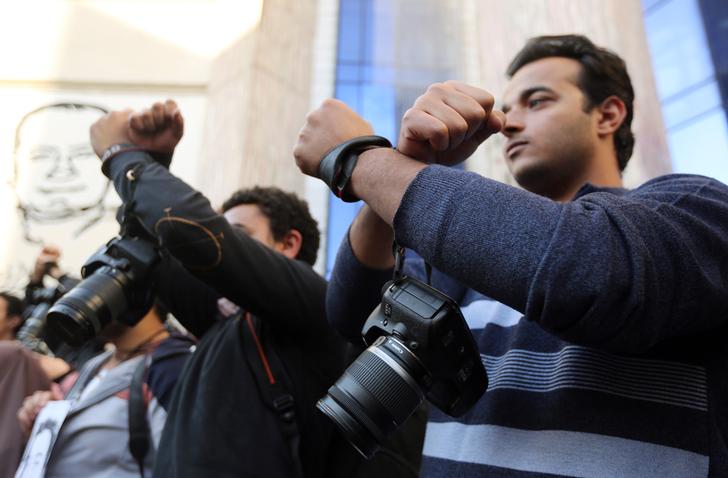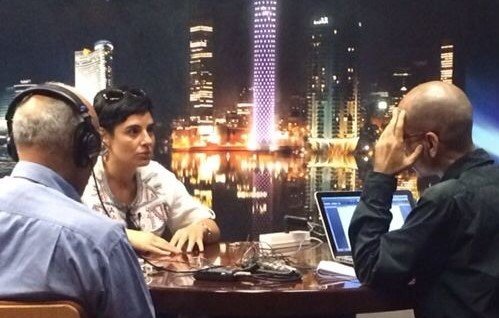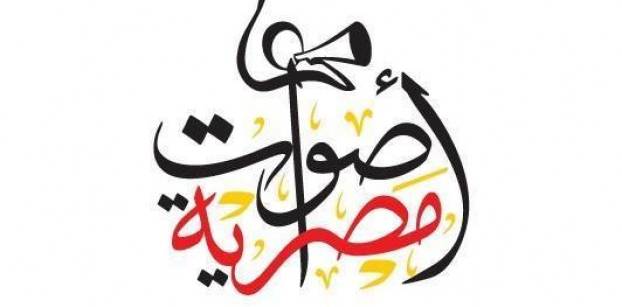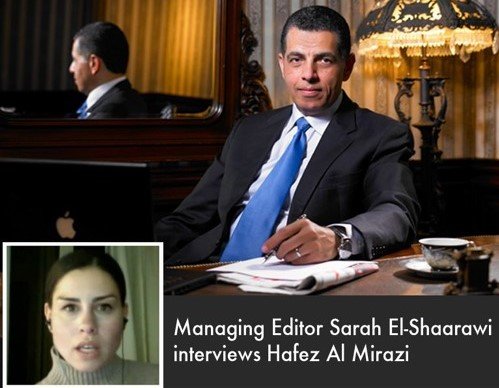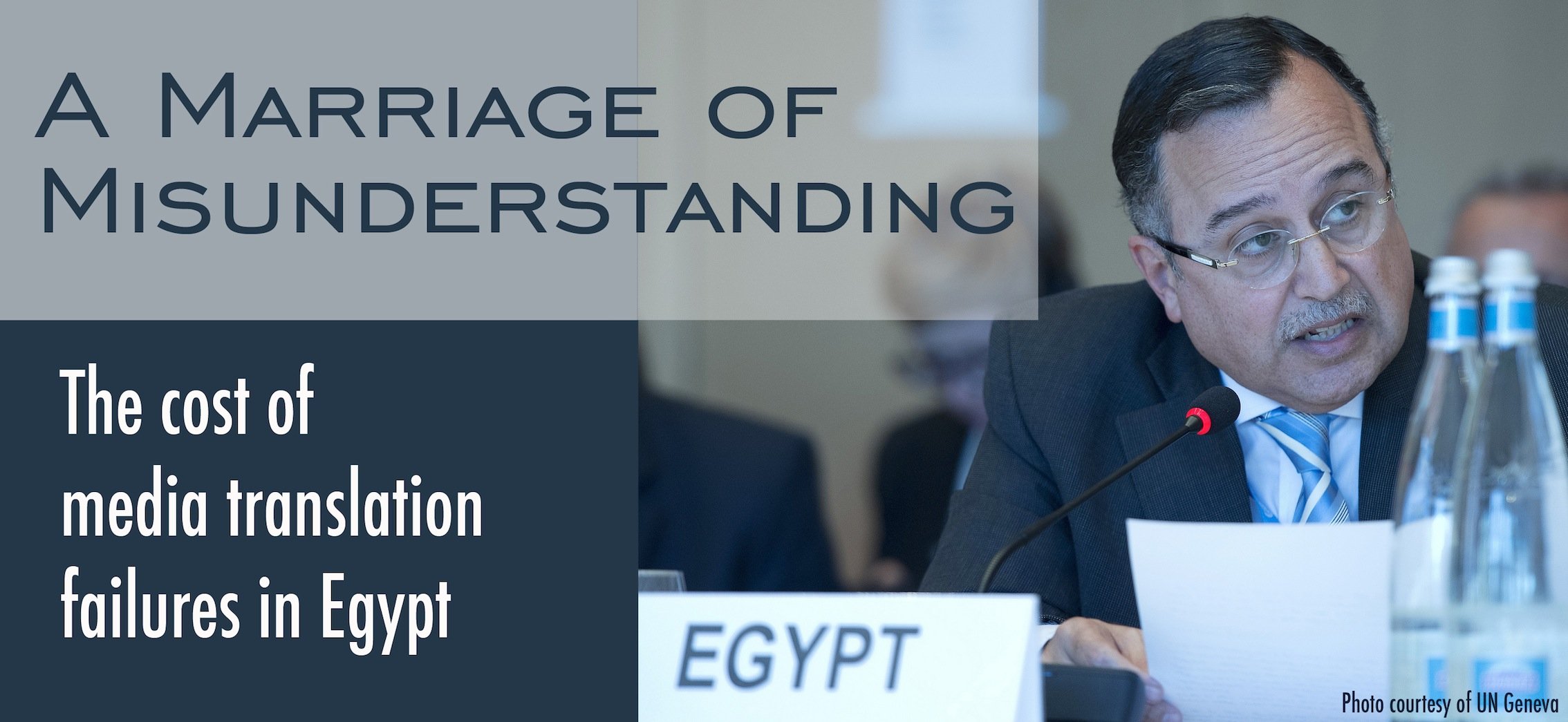January 11, 2016—On Monday, a Cairo misdemeanor court sentenced four journalists to three years in prison each on charges of 'publishing false news' and 'membership in an illegal organization'. The verdict is subject to appeal.
Read More »Egypt
Jail Sentence for Controversial TV Host Reduced to One Year
December 29, 2015—An Egyptian appeals court announced its decision to reduce the jail sentence of controversial religious researcher and television host Islam al-Beheiry today. Convicted in absentia last May for contempt of religion, al-Beheiry had lost an earlier appeal attempt in October.
Read More »Egyptian Novelist Ahmed Naji on Trial for ‘obscene sexual content’
December 12, 2015—Egyptian writer and journalist Ahmed Naji was brought to court Saturday, where he faces trial for publishing "obscene sexual content" in a literary weekly.
Read More »Dec. 8, 2015 – Egypt Ministry of Interior says no gain when publishing prohibited
With a series of recent high profile cases, there has been substantial scrutiny on the Egyptian government’s treatment of journalists. Arab Media & Society speaks with Ashraf Al-Anani, Director of the Security Media Department at the Egyptian Ministry of Interior. (Arab Media & Society)
Read More »PODCAST | Questioning the Narrative
Abdalla Hassan, author of Media, Revolution and Politics in Egypt (I.B. Tauris) and Associate Director of the Adham Center for Television and Digital Journalism, speaks with outspoken TV presenter Reem Maged about the post-revolution media landscape and freedom of expression in Egypt. Maged spoke to us following her lecture on "Media Manipulation" at the American University in Cairo.
Read More »Nov. 10, 2015 – Egypt rights group denounces anchorwoman’s suspension
On Monday The Arab Network for Human Rights Information (ANHRI) denounced the suspension of Azza Elhenawy, an anchorwoman at Egypt's state television for comments she made on her show earlier this month. (Aswat Masriya)
Read More »Oct. 31, 2015 – Egypt journalist and chief editor referred to criminal court
A journalist and the editor-in-chief of a magazine run by the state-owned Akhbar Al-Youm news organisation were referred to a criminal court on Saturday for publishing and writing an article containing "obscene sexual content." (Aswat Masriya)
Read More »PODCAST | Tackling Egypt’s National Broadcasting Dilemma
For the first episode of the Arab Media & Society Podcast, Managing Editor Sarah El-Shaarawi speaks with Hafez Al Mirazi, a veteran of Arab and international broadcasting and Director of the Adham Center for Television and Digital Journalism at the American University in Cairo about why reforming Egyptian national broadcasting is essential to its survival.
Read More »Oct. 30, 2015 – Controversial TV anchorwoman Riham Saeed resigns as channel suspends her show
Al-Nahar TV Network announced Friday the suspension of Sabaya al-Kheir TV program hosted by controversial anchorwoman Riham Saeed, who resigned amid public outrage against her for airing personal photos of a guest on her show without her permission. Last Tuesday, Saeed hosted Somaya Tarek, who claims to have been harassed by a man in a Heliopolis mall. On her show, Saeed appeared to defend the man and blame the woman, implying that Tarek "had brought it on herself." (Aswat Masriya)
Read More »A Marriage of Misunderstanding
In April 2014, Egypt’s then foreign minister Nabil Fahmy used a marriage simile to describe the country’s relationship with the United States. At home, the expression didn’t translate. Muhammad Y Gamal discusses the challenges associated with media translation, and makes a case for the development of a coherent media translation policy in Egypt.
Read More » Arab Media & Society The Arab Media Hub
Arab Media & Society The Arab Media Hub
